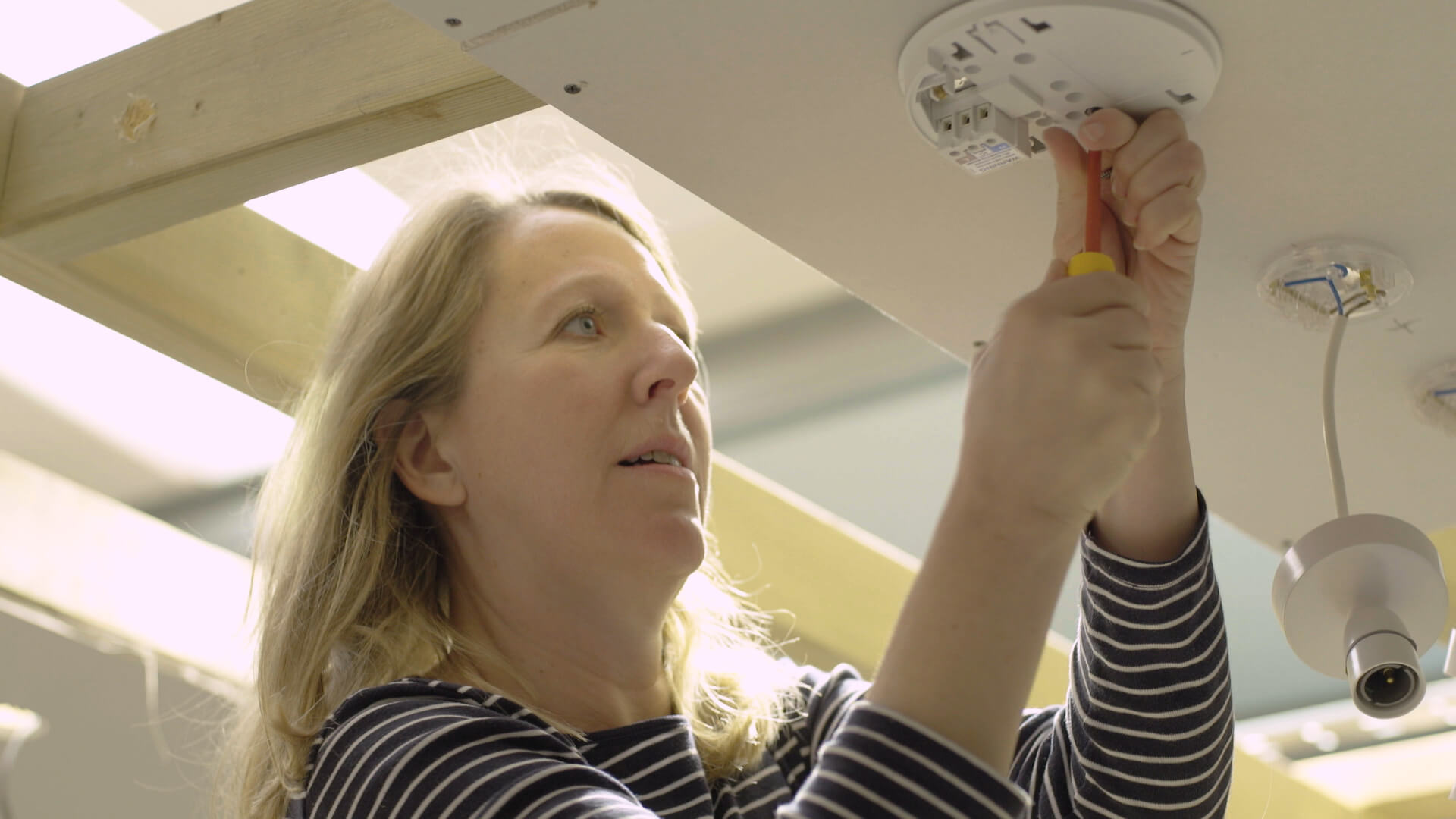What is a domestic electrician?

Thinking about becoming an electrician? One of the most common routes into the trade is working as a domestic electrician. These are the professionals who keep homes running safely, whether that’s installing new sockets, upgrading consumer units, or fixing faulty wiring. If you’re exploring a career in electrics, understanding the role of a domestic electrician is a great place to start.
What is a domestic electrician?
A domestic electrician is a qualified professional who installs, maintains and repairs electrical systems in people’s homes. Their work focuses on making sure that households have safe and reliable power, and may also include advising homeowners on energy efficiency and carrying out upgrades to meet modern standards.
Unlike other types of electricians, who might work on large commercial buildings or industrial machinery, domestic electricians deal only with residential properties. This means that while their role covers everything from lighting and wiring to sockets and appliances, all work is carried out in a domestic setting, using lower-voltage systems typical of homes and in compliance with relevant safety regulations and building codes.
What work do domestic electricians carry out?
Domestic electricians handle a wide range of tasks around the home to keep electrical systems safe and efficient. Their work might include:
– Installing and upgrading lighting, sockets, fuse boxes and charging points
– Carrying out routine inspections and safety checks in properties
– Fitting and testing home security or alarm systems
– Diagnosing and repairing faults in household wiring and circuits
– Replacing outdated or faulty electrical components
– Ensuring that all work complies with current safety regulations
You can read more about the skills and responsibilities of domestic electricians in our guide ‘What does an electrician do?’
How is being a domestic electrician different to other types of electrician?
While electricians share many similar core skills, there are different specialisms depending on where they work and the type of systems they handle. Here’s how domestic electricians compare with others in the trade.
Commercial electrician
Commercial electricians focus on shops, offices, schools and other public or business spaces. They often deal with larger, more complex systems than those you’d find in a home, such as multi-storey lighting setups, emergency systems and commercial-grade wiring. The training is similar but may include additional qualifications and experience in delivering larger-scale projects.
Industrial electrician
Industrial electricians work in places like factories, warehouses and manufacturing plants, maintaining and repairing heavy-duty machinery and their power systems. Their work often involves higher voltages and more specialised knowledge than domestic or commercial roles. Health and safety standards are stricter too, in line with the scale and potential risks of industrial environments.
Utility electrician
Utility electricians are responsible for the electrical infrastructure that supplies power to homes and businesses. This includes working on power lines, substations and grid connections. Their role is quite different from domestic work as it focuses on energy distribution rather than installations inside a property, and it therefore requires specialist training and qualifications.
How do you become a domestic electrician?
There are several routes to becoming a domestic electrician, depending on your age, experience and learning style. The main pathways include:
– Full-time education: Studying electrical qualifications at college
– Apprenticeship: Combining hands-on experience with classroom learning
– Adult learner: Retraining later in life through structured courses
– Experienced worker assessment: For those with industry experience but no formal qualifications
You can explore each of these routes in more detail in our guide to becoming an electrician.
Want to become a domestic electrician?
Interested in becoming a domestic electrician? Take a look at our courses to get started on your journey. And if you’ve got any questions, just get in touch with our team and they’ll be happy to help.
Back to blog



